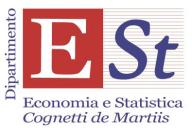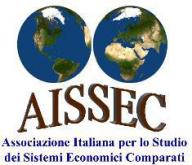by Augusto Ninni, University of Parma
While the role of green industrial policy (GIP) and its effects are object of analysis at the level of very large emerging countries, like China or India (because scale economies are very important), its range is still questioned at the level of not so large emerging countries, like Vietnam. Furthermore, Vietnam is still at a lower level of technological capability, weakening its autonomous possibility of success.
As known, on the theoretical side industrial policy (IP) is justified when failure markets overcome government failures. In the case of environment troubles caused by energy issues (that are responsible for around 2/3 of the climate change due to GHG emissions) failure markets seem huge, at least for three reasons: a) because market prices in the environmental and energy field work badly, as they do not include externalities; b) because their utilization as tools to drive the behavior of the users seems unsatisfactory, as price elasticity is rather low; c) for the difficulties in the worldwide experience to utilize regulatory and market driven instruments as carbon tax and emission trading. The presence of government failures can be broad, but it is can be overcome if the consequences are a sharp decrease of the prices of the renewable equipment, as it occurred in the case of solar panels.
The history of IP in Vietnam is usually divided in three different periods. The first period started in 1986 with the liberalisation of a large part of the economic activity (Doi Moi phase), including the participation to ASEAN on the international side; the second period started in 2000 with the constitution of the first enterprise law, followed by the second enterprise law in 2005: a set of institutional rules governing the behaviour of the enterprises was thus created, opening the door for a strong inflow of Foreign Direct Investments (FDIs) in the country; a third period started in 2007, when Vietnam entered World Trade Organization (WTO), in order to internationalize its economy and to transform its productive basis from firms owned and operated by foreign investors, aiming to exploit its low cost of labour and an hard working labour force , to independent firms able to work within global value chain as supplier of firms operating in other countries and closer to final markets.
In September 2012 Vietnam adopted the Green Growth Strategy (VGGS) with the aim to reduce emission (8-10% with respect to the 2010 level) and energy intensity (1-1.5 % for year) by 2020. VGGS requires a demand and a supply strategy. The latter can be explained by the fact that the green industry (or better the “New energy and renewable energy”) is now considered a strategic sector, with a general reduction of tax rates plus tax exemptions for imports. According to Bloomberg, the GIP can be made easier because of the ”substantial local presence of equipment makers in the solar, biomass and waste, and wind value chains”, but it suffers from lack of presence in some service sectors. Future research should aim at understanding if these conditions involve a general improvement of the Vietnamese competitiveness in the world market for environmental equipment, together with the expected improvement of the Vietnamese environment and GHG emissions.









